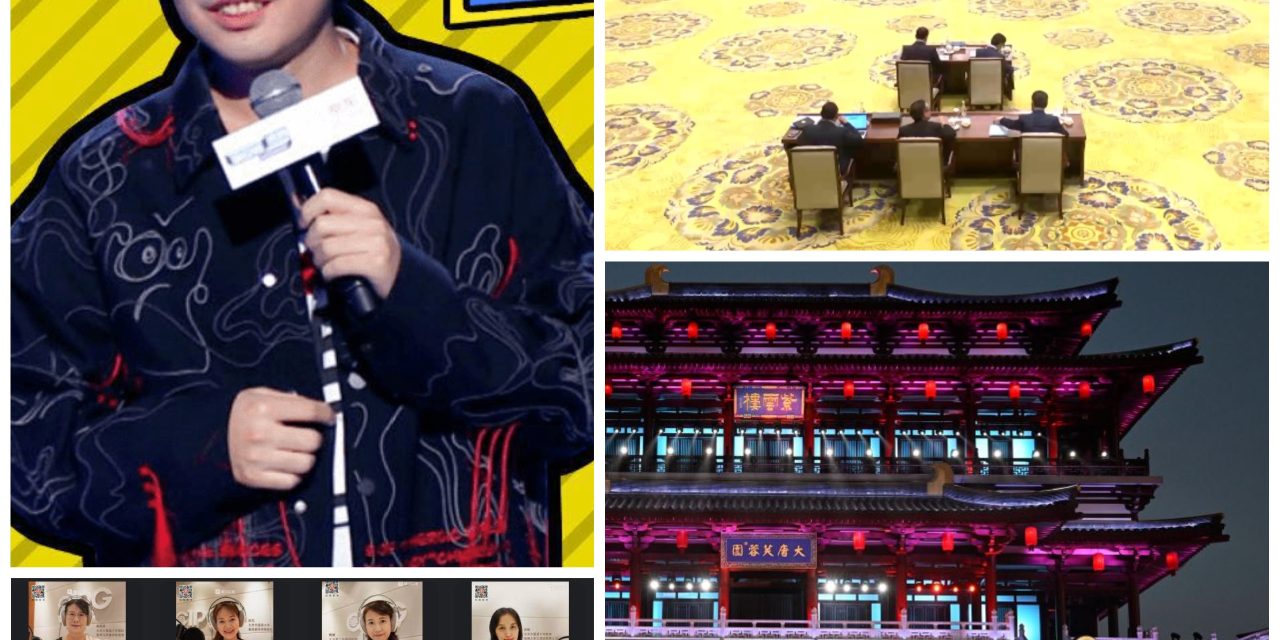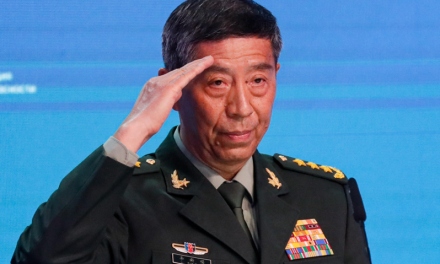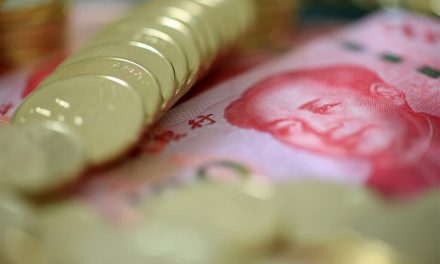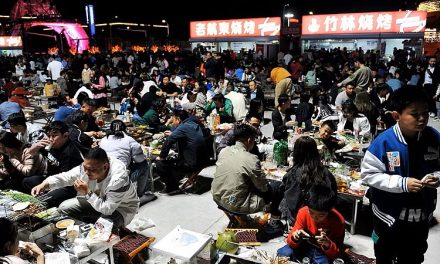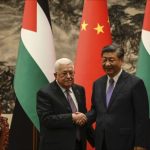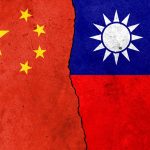THE NATIONS PAY TRIBUTE (万邦来朝)
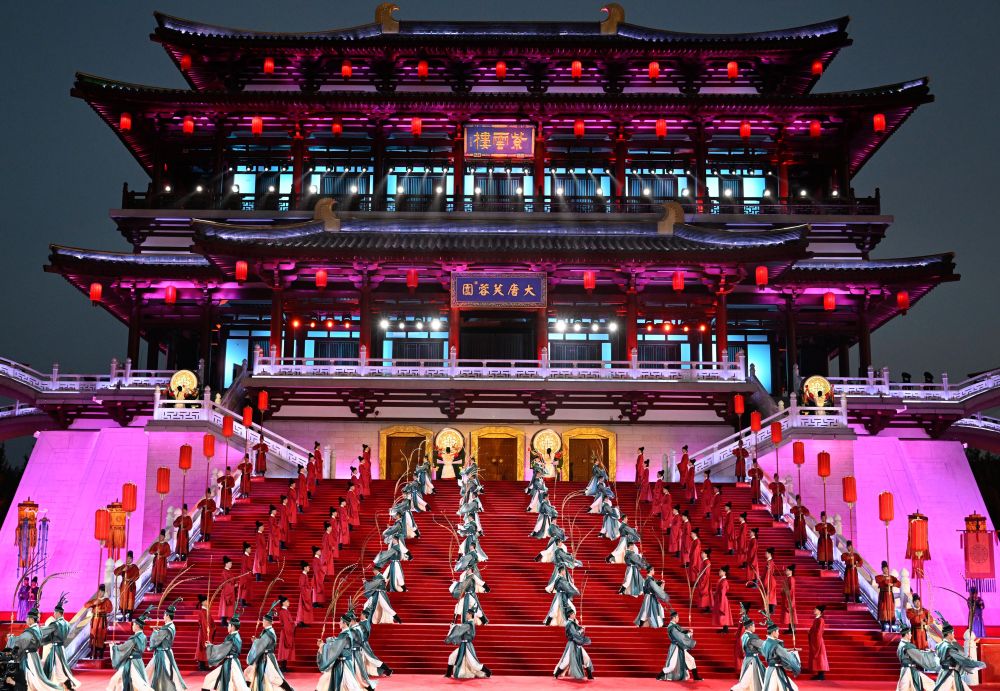
“The Nations Pay Tribute” refers to the act of foreign nations outside the ancient dynasty coming to pay homage to and acknowledge the sovereignty of the central rulers. Throughout Chinese history, there are records of grand ceremonies where emperors such as Emperor Yang of Sui, Emperor Taizong of Tang, and Emperor Hongwu of Ming received tributes from various nations. The concept of “face” has long been considered a good way in Chinese culture to demonstrate one’s strength.
This week, at the summit between China and five Central Asian countries held in Xi’an, Xi Jinping’s obsession with the concept of “The Nations Pay Tribute” was once again validated. It was showcased in the extensively renovated Tang Paradise facility, at a cost of hundreds of millions, as a display of the “grace and magnificence of a nation known for its etiquette.” Subsequently, agreements were signed to provide a total of 26 billion yuan (3.7 billion USD) in financing support and gratuitous aid to the Central Asian countries.
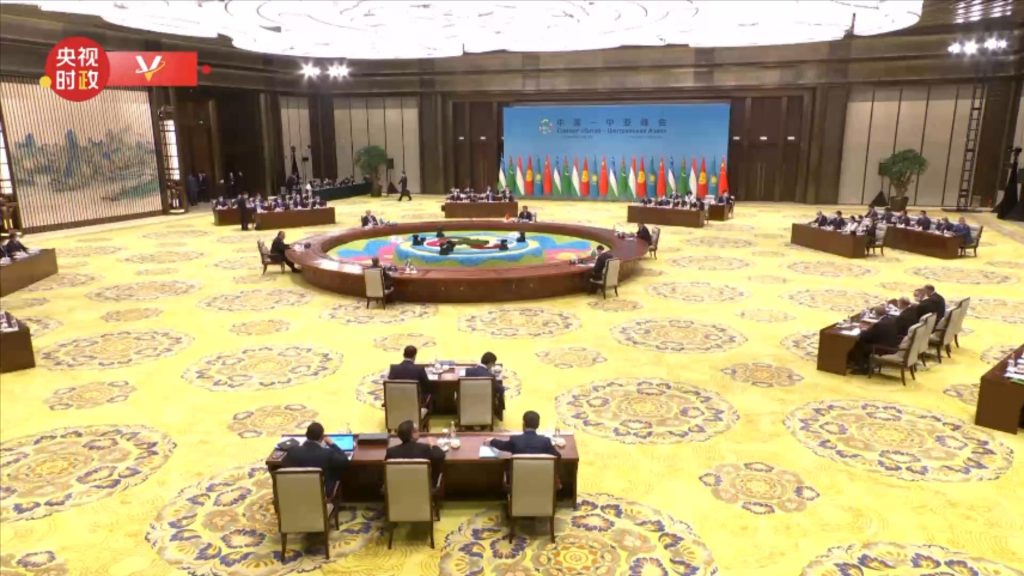
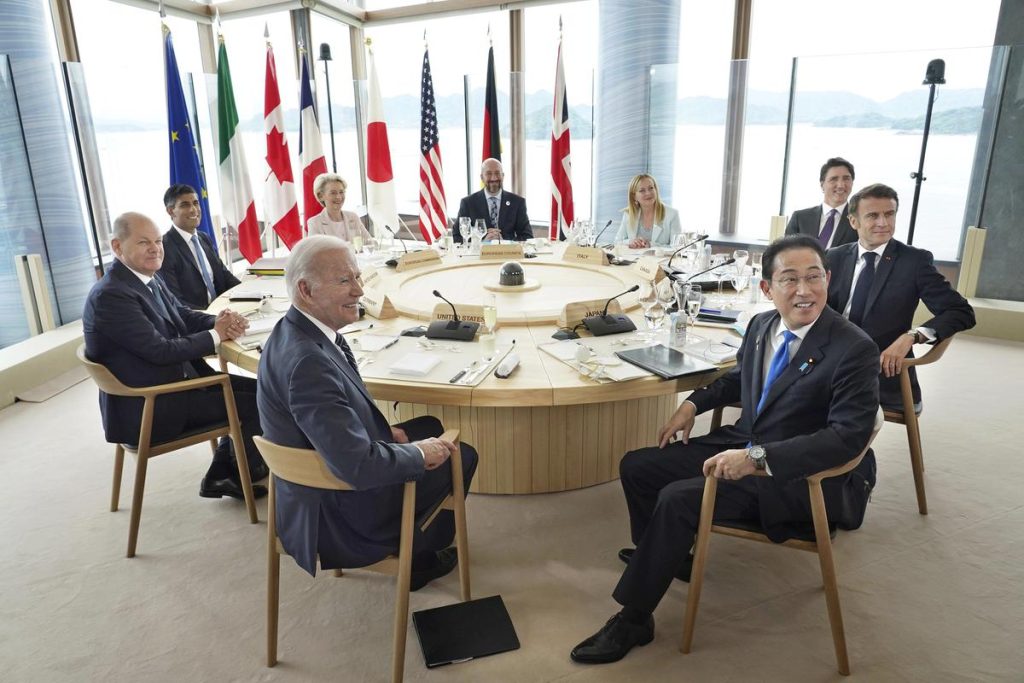
Contrasting photos of the roundtable conference in Xi’an and the simultaneous G7 summit held in Hiroshima.
TALK-SHOW BAN
The Chinese comedian HOUSE, who is a stand-up comedy superstar at China Laugh Studio, used the phrase “excellent style, capable of winning battles” during his live performance on May 13th to describe two aggressive wild dogs chasing squirrels. These phrases were the exact words used by Xi Jinping in 2013 to laud the People’s Liberation Army. People in the audience reported the remark on Weibo, claiming that such humor insulted the soldiers of the People’s Liberation Army, and an online backlash against HOUSE quickly spread. On May 15th, the Beijing Comprehensive Law Enforcement Brigade for the Cultural Market fined China Laugh Studio 13.35 million Chinese yuan and canceled all their future performances in Beijing. HOUSE himself was immediately dismissed and taken away by the police. The current strict censorship of speech and ubiquitous culture of reporting such incidents cannot help but remind people of the terrifying years of the Cultural Revolution. Chinese artists were already being extremely cautious in their words and actions, but they still do not know which words might stumble in the top leadership’s minefield and bring about fatal consequences. Under such a terrifying rule, one either remains silent or sings praises, which has become the way to survive in the cultural realm.

CELEBRITIES READING XI’S BOOK
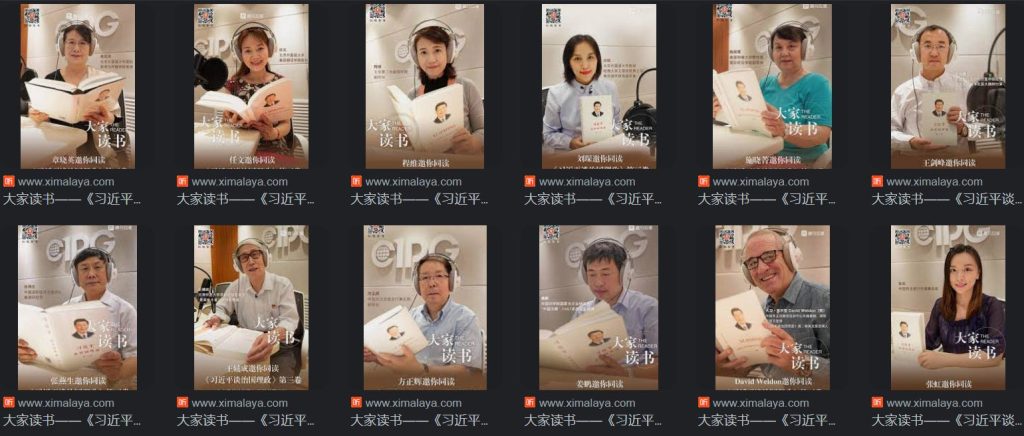
In order to express their unwavering loyalty to the supreme leader, celebrities in the cultural realm have been showcasing photos of themselves earnestly studying the book “Xi Jinping Speaks: The Governance of China.” Among them are former Minister of Culture Wang Meng and renowned actor Jiang Kun. Prominent bookstores prominently display books by Xi.
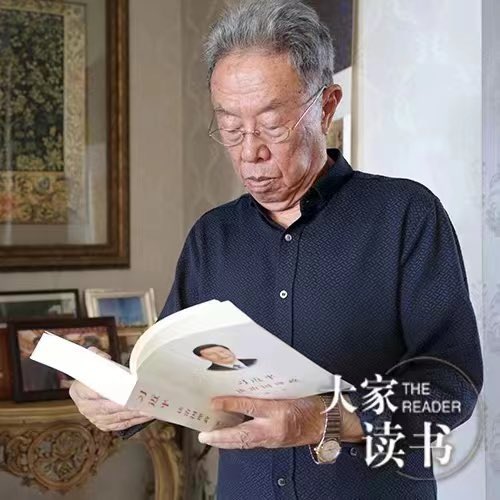
During the chaotic Cultural Revolution of the 1960s, the “Little Red Book” formed by the collection of Mao Zedong’s quotations, poems, and directives, with up to 5 billion copies in circulation, was something every Chinese person had to recite and study daily. It even became customary to give the “Little Red Book” as a gift for weddings. No one could have imagined that 60 years later, the Chinese people would once again embrace the writings of another great leader, entering a new era akin to Cultural Revolution 2.0.

